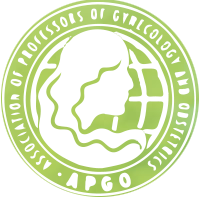UMEC Spotlight on Faculty Development: Moune Jabre Raughley, MD
Meet Moune Jabre Raughley, MD, of Weill Cornell Medicine in Qatar
Presenter at the 2017 Martin L. Stone, MD, Faculty Development Seminar
“Teaching Humanistic Care for Women with Limited English Proficiency Using Standardized Patients”
Between working with colleagues and attending conferences, US ob-gyns have plenty of opportunities to discuss best practices in American health care. How often, though, do they get to learn and explore techniques of humanistic ob-gyn care in a country across the globe? Moune Jabre Raughley, MD, of Weill Cornell Medicine in Qatar, offered  participants at the 2017 Martin L. Stone, MD, Faculty Development Seminar the opportunity to do just that with her round table session, “Teaching Humanistic Care for Women with Limited English Proficiency Using Standardized Patients,” presented on Tuesday, January 10, 2017, the Hyatt Regency Indian Wells near Palm Springs, California.
participants at the 2017 Martin L. Stone, MD, Faculty Development Seminar the opportunity to do just that with her round table session, “Teaching Humanistic Care for Women with Limited English Proficiency Using Standardized Patients,” presented on Tuesday, January 10, 2017, the Hyatt Regency Indian Wells near Palm Springs, California.
APGO: What is your experience in the challenge area—that is, teaching cultural sensitivity—related to your presentation?
Doctor Jabre Raughley: Expatriates and immigrants comprise more than 75% of Qatar’s population. This multicultural tapestry draws locally from the Middle East, Asia in the East and Europe/North America in the West. Although Arabic is the primary language in the community, English is the official language of the hospital. At least five to six other languages (Tagalog, Hindi, Urdu, Pashto, Tamil and Bengali, among others) are encountered daily. Most students and providers are proficient in Arabic and English, but for a significant portion of the population, there will be a language barrier.
Additionally, cultural barriers can develop in numerous situations, especially in the ob-gyn setting, given that it deals with sensitive issues for many societies. During the ob-gyn clerkship, we strive to demonstrate the role that cultural differences can exert on encounters and the importance of having proficiency in the skills required to practice culturally competent medicine.
APGO: What are the resources that you found most useful (including APGO resources)?
Doctor Jabre Raughley: Helpful resources in putting together the round table session included:
- APGO Medical Student Educational Objectives
- Several articles in the “To the Point” series developed by APGO’s UMEC and published in the Gray Journal.
- Kenison TC, Madu A, Krupat E, Ticona L, Vargas IM, Green AR. Through the Veil of Language: Exploring the Hidden Curriculum for the Care of Patients With Limited English Proficiency. Acad Med. 2016 May 10
- My colleagues at Weill Cornell Medicine–Qatar who run the Clinical Skills Center and the Center for Cultural Competence in Healthcare: Stella Major, Lan Sawan, Maha ElNashar and Huda Abdelrahim
APGO: What challenges did you encounter when developing your program in Qatar? What was the solution?
Doctor Jabre Raughley: First, finding enough interpreters to run the course for a full batch of clerkship students in one session. Interpreters work on a volunteer basis for the Medical School and are not employed by the hospital. To solve this, we ran late in the day to accommodate after work hours for the interpreters and provided food/refreshments for all participants on-site.
Next, the interpreters had to be trained so there would be consistency in their interpretation to ensure students obtained the same medical information. A short orientation and training session was developed by the simulation center and cultural competence center faculty, and it is now held for all new interpreters participating in this module prior to the running the session Interpreters had to be trained on how to provide feedback, so brief teaching is provided as part of the training and orientation module. Interpreters may also seek out additional one-on-one training. Written resources are provided.
Finally, simply finding time in the clerkship curriculum and justifying the value of this module. We played around with the schedule to free up a few hours to run the module. The medical education department was very supportive and saw the educational value immediately.
APGO: What are one to three things that you hope people who attend your presentation at the Faculty Development Seminar took home with them?
Doctor Jabre Raughley: Students need to practice caring for limited English proficiency patients in a structured environment in order to develop their skills, feel less intimidated or daunted when faced with a language barrier and to counter the “hidden curriculum” that may be observed in the clinical setting. Using an OSCE case can empower students to strive for culturally competent care and hopefully will allow them to model it for future generations.
For more informative sessions such as Doctor Jabre Raughley’s, mark your calendar for the 2018 APGO’s Martin L. Stone, MD, Faculty Development Seminar to be held at the Eau Palm Beach Resort & Spa in Manalapan, Florida, from January 6-9, 2018.


